[Thread] Solving the #housing crisis means facing facts
#1 Planning Permission is not a barrier to housing in Dublin, there are over 40,000 ‘ready-to-go’ permissions for houses & apartments in Dublin Q2 2020
Just 2,000 homes were built in 2019, about 5% of available permissions
#1 Planning Permission is not a barrier to housing in Dublin, there are over 40,000 ‘ready-to-go’ permissions for houses & apartments in Dublin Q2 2020
Just 2,000 homes were built in 2019, about 5% of available permissions
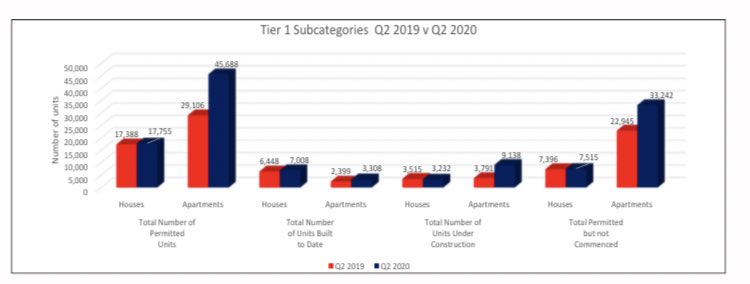
#2 Increasing supply alone won’t make housing affordable
‘additional 1% housing stock expected to lower house prices by 1.5% to 2%, all else equal’ -Economist @ianmulheirn
So by supply alone, Dublin would need 150,000+ new homes to become affordable housingevidence.ac.uk/wp-content/upl…
‘additional 1% housing stock expected to lower house prices by 1.5% to 2%, all else equal’ -Economist @ianmulheirn
So by supply alone, Dublin would need 150,000+ new homes to become affordable housingevidence.ac.uk/wp-content/upl…

Housing is an asset, the value of that asset can rise & fall in the market. The amount of housing supply is a small part of pricing
Economist @DrCameronMurray calls this asset pricing ‘not supply mountain’
Economist @DrCameronMurray calls this asset pricing ‘not supply mountain’
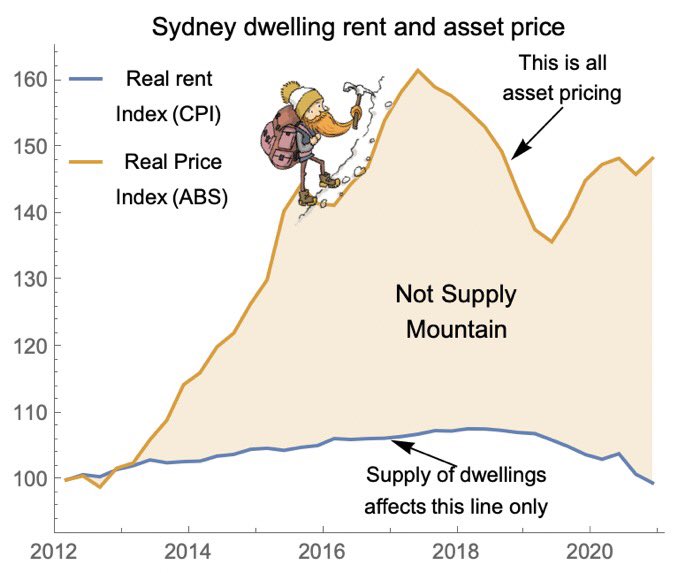
#3 House prices in Ireland don’t fall when supply increases, they fall when the market drops or when the bubble bursts
90,000 homes were built in 2006 & prices didn’t drop
House prices fell in the subsequent financial crash 2008-2013 (pic @finfacts)
90,000 homes were built in 2006 & prices didn’t drop
House prices fell in the subsequent financial crash 2008-2013 (pic @finfacts)
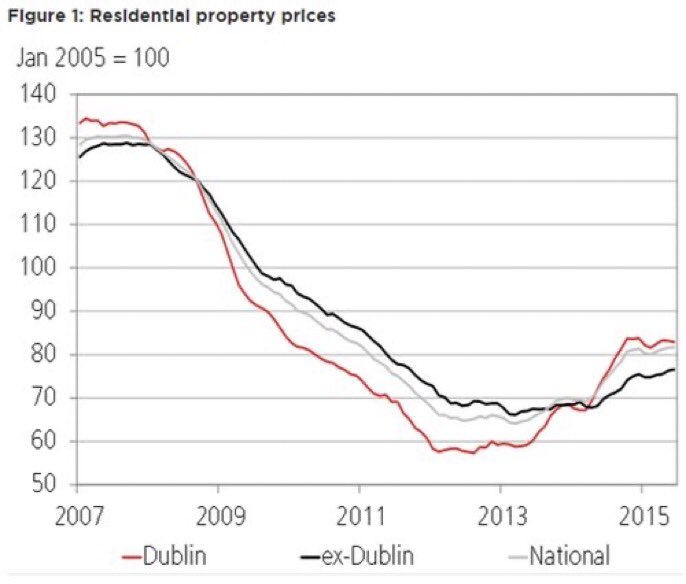
.. this is the “dysfunction” that the economists at @NESCIreland call for bold action to address.
Notable that during 2 years of detailed research NESC did not find the housing crisis was due to the Planning system nesc.ie/news-events/pr…
Notable that during 2 years of detailed research NESC did not find the housing crisis was due to the Planning system nesc.ie/news-events/pr…

.. & economists at National Competiveness Council say affordability ‘impacts upon attractiveness of Ireland as a location for investment & indirectly impacts on enterprise costs. Housing supply also affects labour mobility both into & within an economy’ djei-competitiveness.ptoolsdemo.com/Publications/2…
.. & the economists in the @EuropeanCommiss put most of the recent price increases (lack of affordability) down to ‘land prices & increased margins’ .. ‘which may indicate insufficient competition’ ec.europa.eu/info/sites/def… 
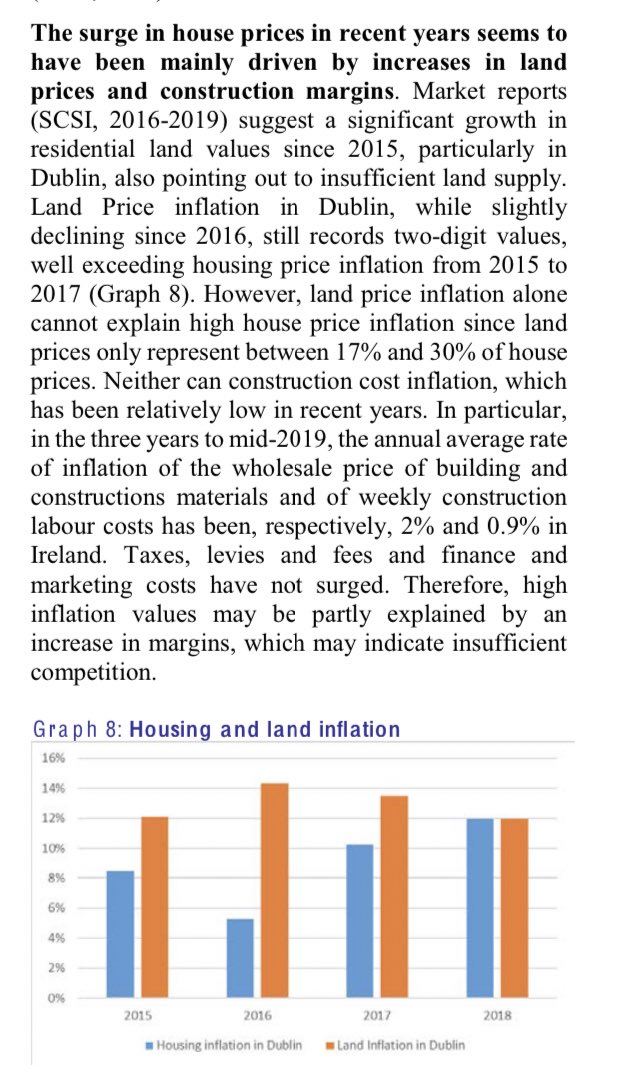
[aside which might explain why the ~same 3-bed house~ that costs €371,000 to deliver in Dublin (according to @SCSISurveyors ) is currently on sale in Carlow for €199,000 Laois for €212,900 Wexford for €205,000 ] 


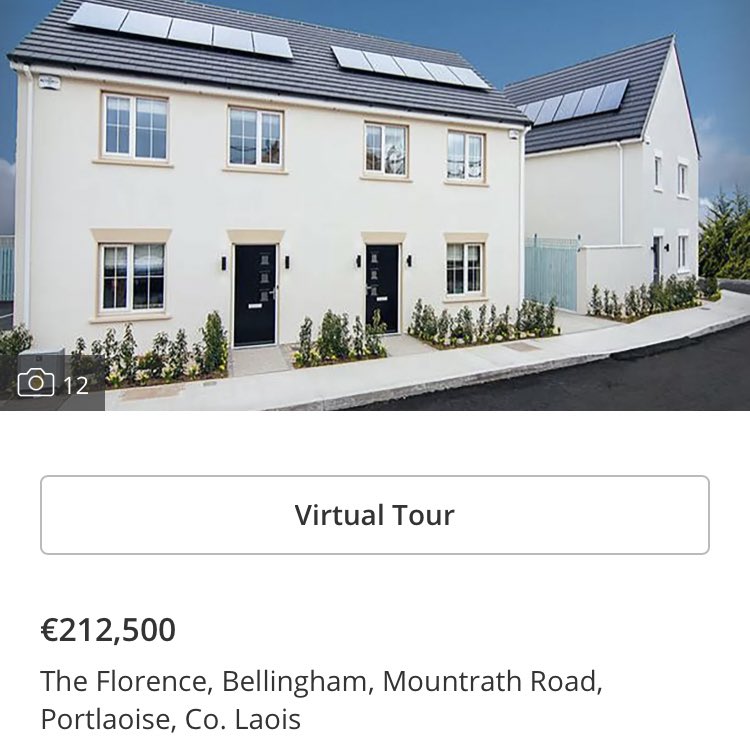
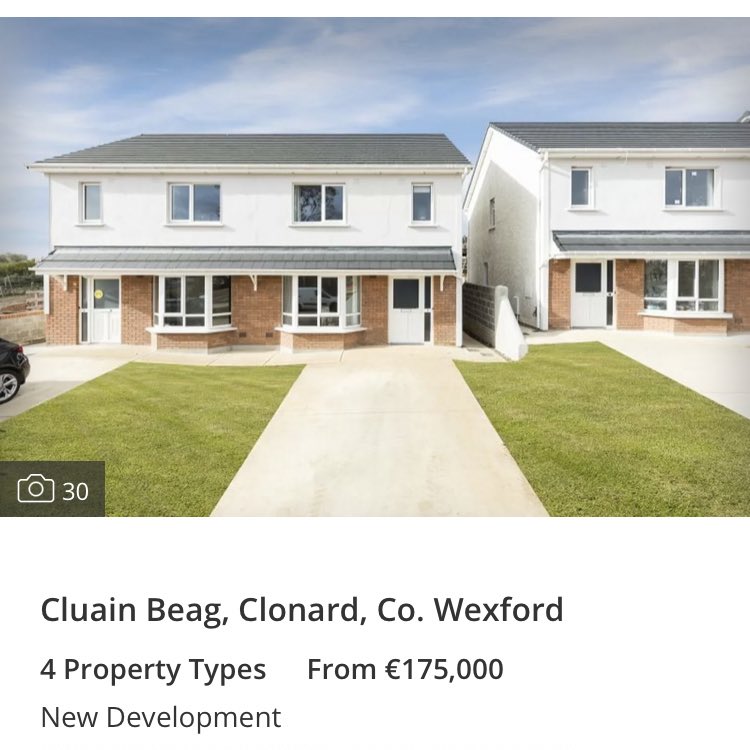

#4 Public participation in Planning is critically important in a democracy (how would we feel if people called the electorate ‘nimbys’ & for limits on voting?)
Participation also gives best outcomes (see: research) & keeps everything in the open & transparent (see: Tribunals)
Participation also gives best outcomes (see: research) & keeps everything in the open & transparent (see: Tribunals)
.. & public participation in environmental decisions is ~required~ under the Aarhus Convention, which Ireland is signed up to ec.europa.eu/environment/aa… 
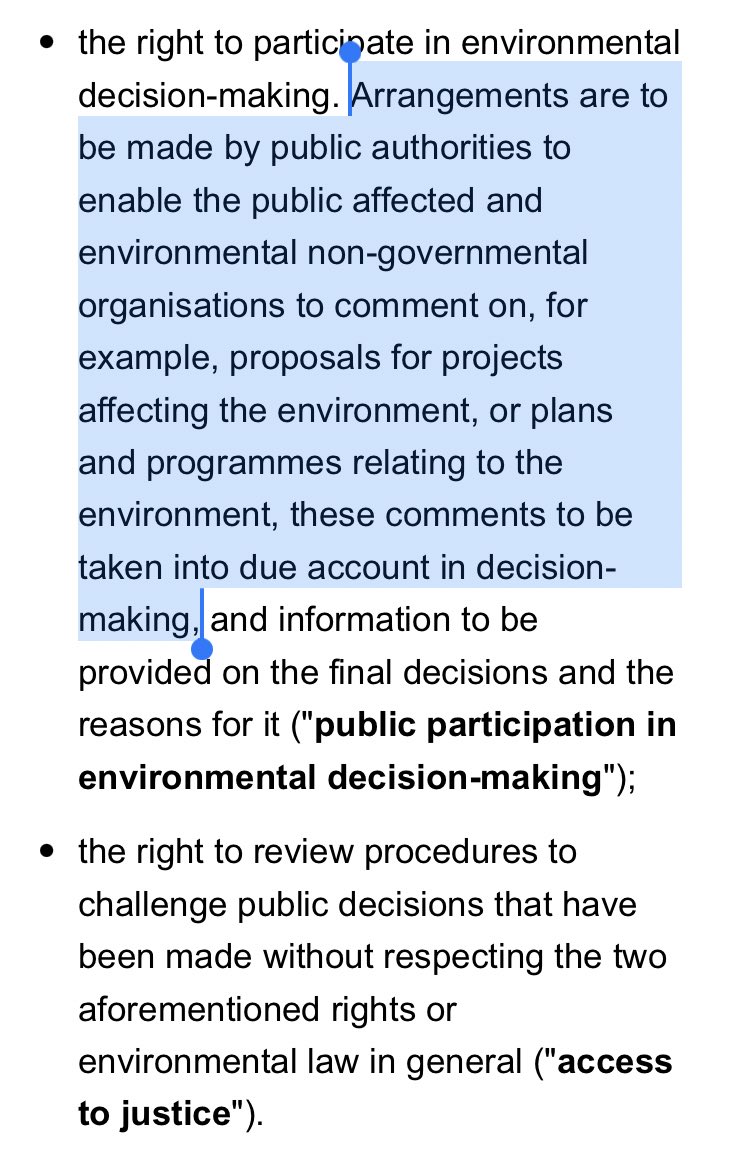
#5 More Planning Permissions are being overturned in courts recently
What changed? Developers lobbied for a new system that reduced public participation & by-passed democratically adopted plans.. so instead of early local resolution, issues have been escalated to the courts
What changed? Developers lobbied for a new system that reduced public participation & by-passed democratically adopted plans.. so instead of early local resolution, issues have been escalated to the courts
.. & solicitor @FredPLogue says ‘crucial aspect to the volume of judicial reviews is that vast majority are successful.. & shows they were completely valid.. You don’t win a JR on minor detail’.
Up to 90% of judicial reviews against SHD are successful irishexaminer.com/opinion/commen…
Up to 90% of judicial reviews against SHD are successful irishexaminer.com/opinion/commen…
[Aside: Developer who didn’t use the new Planning system had a faster & easier permission, with no appeals] irishtimes.com/business/comme… 
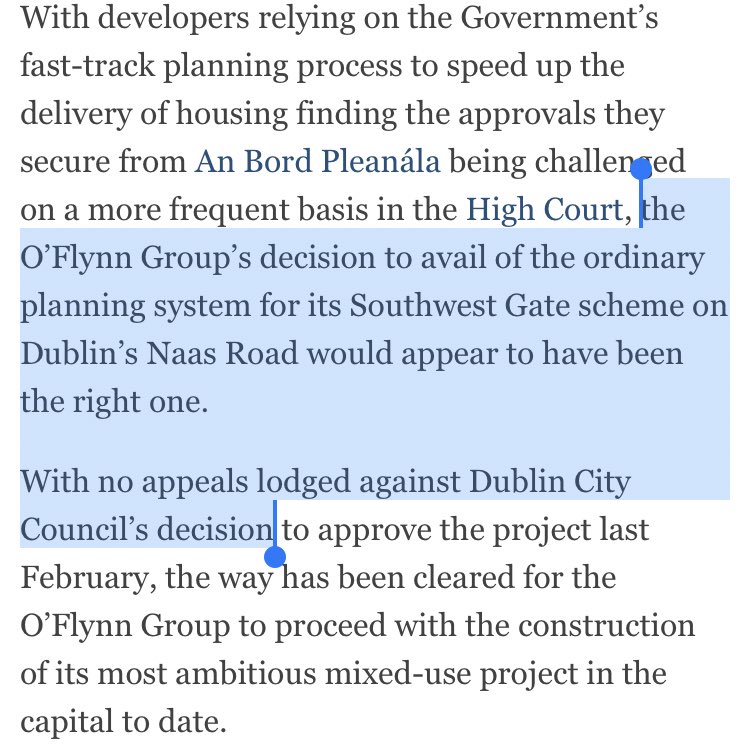
.. so if more Planning permissions are being overturned —meaning cost & delay for everyone—how did that come about?
Developers lobbied for a Planning system that was less democratic & more corporate (& they got it) @killianwoods @businessposthq analysis: data.oireachtas.ie/ie/oireachtas/…
Developers lobbied for a Planning system that was less democratic & more corporate (& they got it) @killianwoods @businessposthq analysis: data.oireachtas.ie/ie/oireachtas/…
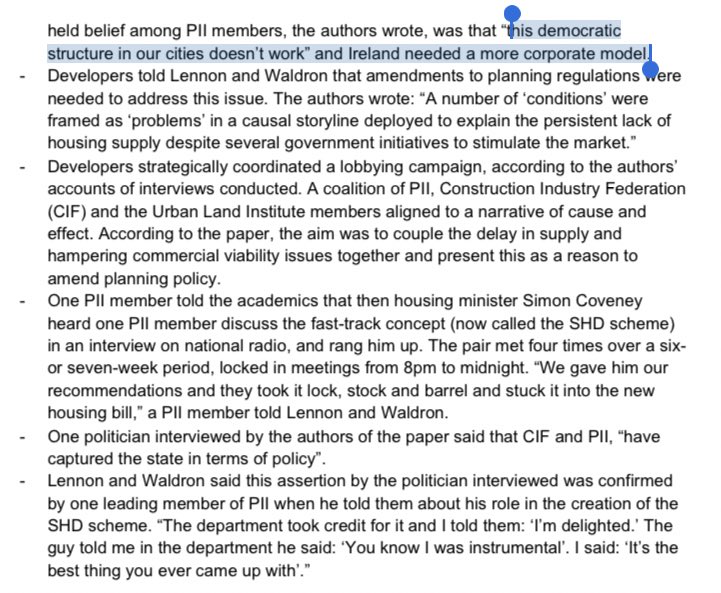
tl;dr
Planning isn’t a barrier to housing (& it never was)
Ireland has an affordability crisis, that supply alone can’t fix (it’s systemic issues)
Demonising ‘Planning’ is ideological, to shift balance to corporate-led (unaccountable).. away from research-led & democratic
Planning isn’t a barrier to housing (& it never was)
Ireland has an affordability crisis, that supply alone can’t fix (it’s systemic issues)
Demonising ‘Planning’ is ideological, to shift balance to corporate-led (unaccountable).. away from research-led & democratic
[Aside: I don’t use the term NIMBY for people who participate in the democratic Planning process as it tends to shame & exclude... it’s better to ‘engage with the diversity & complexity of local concerns & interests’ ] researchgate.net/publication/23… 
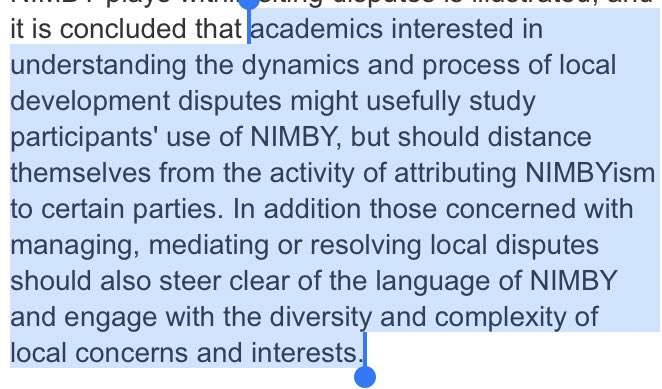
& finally... by coincidence it’s exactly 2 years since I asked this question? (still waiting)
https://twitter.com/Orla_Hegarty/status/1123522817012699137
• • •
Missing some Tweet in this thread? You can try to
force a refresh








